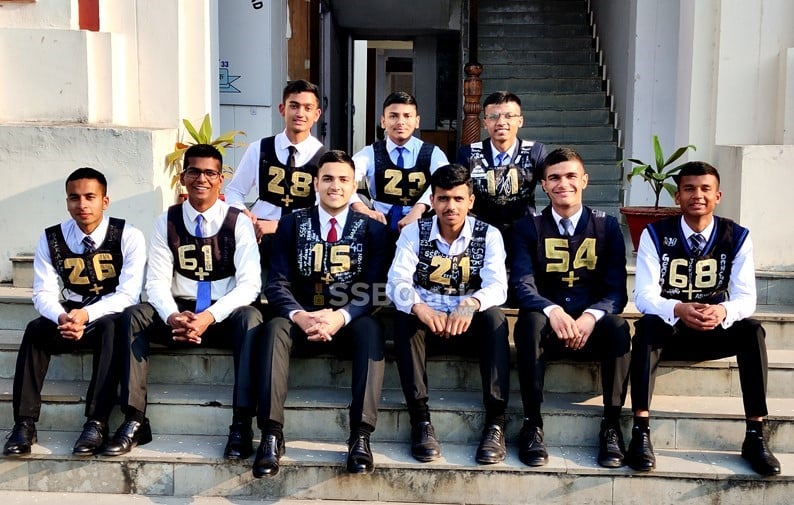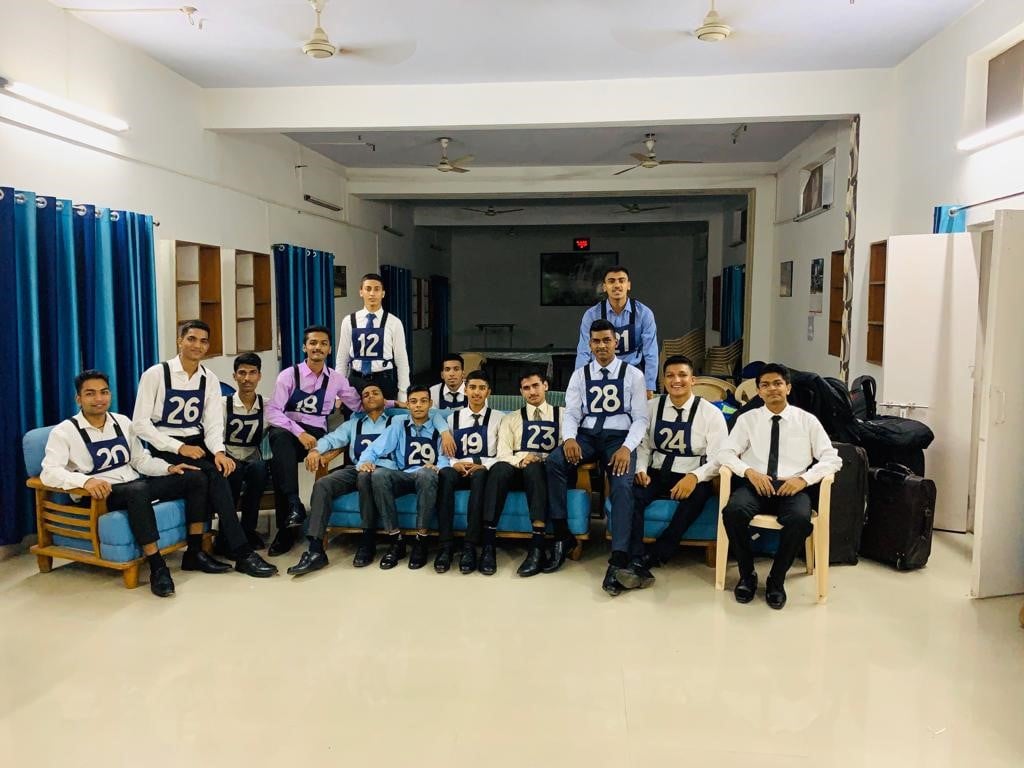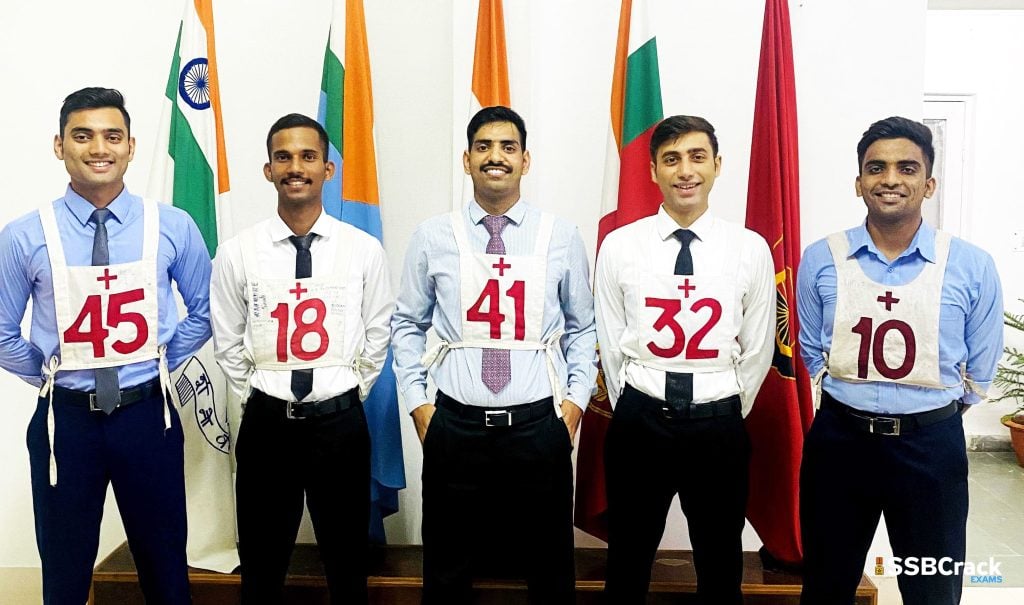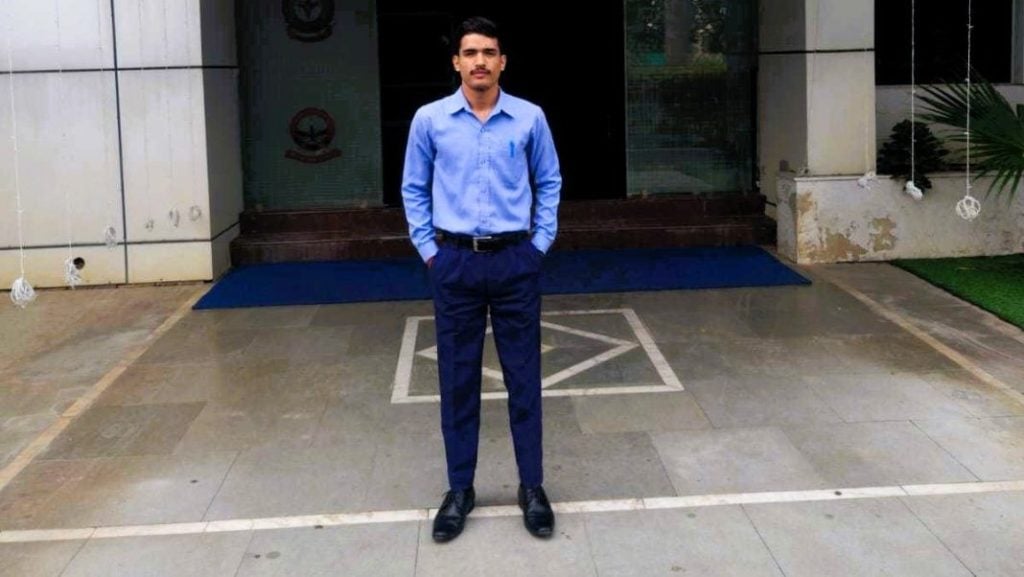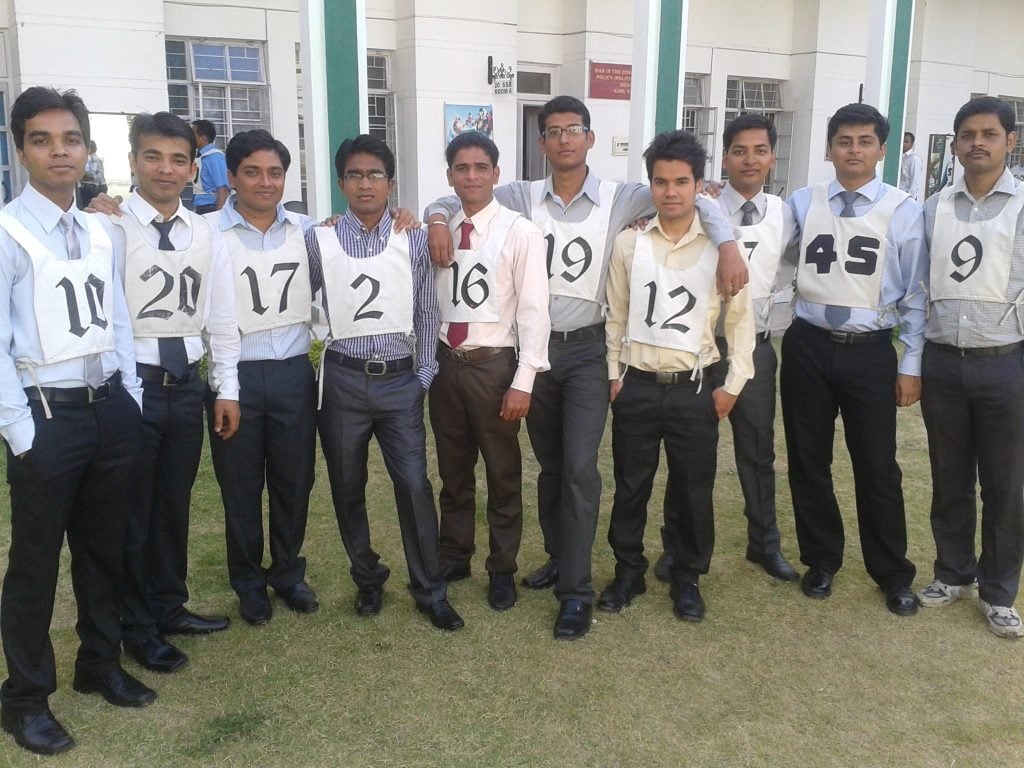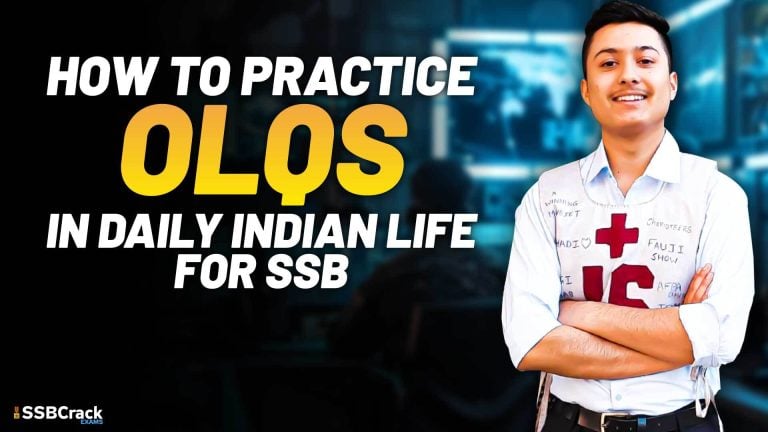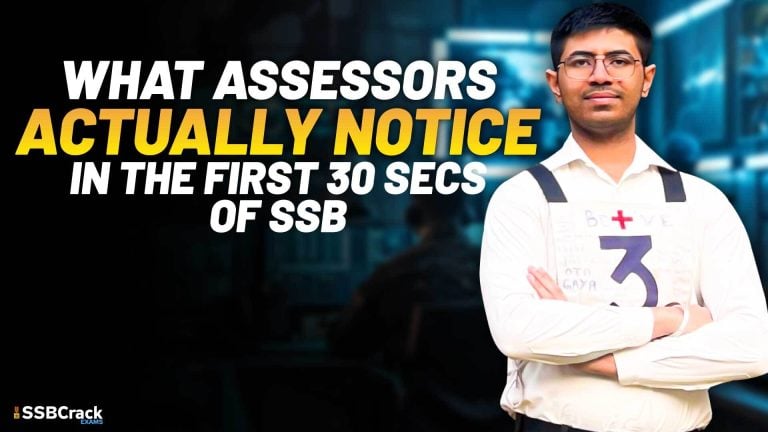Preparing for the Services Selection Board (SSB) interview is a pivotal step for candidates aspiring to join the armed forces. The SSB interview process is known for its thorough evaluation of candidates, assessing not just academic knowledge but also personality traits, leadership skills, and communication abilities. To navigate this rigorous selection process successfully, candidates must develop specific daily habits that enhance their preparedness. Below, we explore these essential habits in detail, providing a comprehensive guide to help candidates maximize their potential.
Developing effective daily habits is crucial for candidates preparing for the SSB interview. These habits contribute to physical, mental, and emotional readiness, which are all vital for success.
Also Read | 10 Proven Tips to Improve Situation Reaction Test (SRT) Responses
1. Physical Readiness
Engaging in regular physical activity is essential for maintaining the fitness levels required for military service. Physical readiness not only boosts endurance and strength but also instills discipline and resilience.
Mental and Emotional Preparedness
Mental agility is equally important. Candidates need to cultivate a mindset that embraces challenges and learns from failures. Emotional intelligence can help candidates manage stress and interact effectively with others during the interview process.
Holistic Development
The combination of physical fitness, mental sharpness, and emotional stability creates a well-rounded candidate ready to face the challenges of the SSB interview. By focusing on daily habits, candidates can significantly enhance their overall readiness.
2. Daily Physical Exercise
Importance of Fitness
Physical fitness is a non-negotiable aspect of SSB preparation. Candidates must incorporate a variety of exercises into their daily routines to ensure they meet the physical demands of military training.
Types of Exercises
- Cardiovascular Activities: Running, cycling, and swimming improve stamina.
- Strength Training: Weightlifting and bodyweight exercises build muscle and endurance.
- Flexibility and Agility Drills: Yoga and stretching enhance flexibility and reduce injury risk.
Creating a Routine
Establishing a balanced exercise routine can help candidates stay committed. Aim for at least 30 minutes of physical activity each day, mixing different types of workouts to keep things interesting.
3. Effective Time Management
Prioritizing Tasks
Effective time management allows candidates to allocate sufficient time for study, exercise, relaxation, and personal development.
Creating a Schedule
- Daily Planner: Use a planner to outline daily tasks, prioritizing them based on urgency and importance.
- Time Blocks: Allocate specific time blocks for studying, exercising, and leisure activities to maintain focus.
Avoiding Procrastination
Procrastination can derail preparation efforts. By setting clear deadlines and breaking tasks into manageable chunks, candidates can enhance productivity and reduce stress.
4. Self-Reflection and Goal Setting
Understanding Strengths and Weaknesses
Self-reflection is crucial for identifying personal strengths and areas that need improvement. Candidates should regularly assess their progress and adjust their strategies accordingly.
Setting SMART Goals
- Specific: Clearly define what you want to achieve.
- Measurable: Set criteria to track progress.
- Achievable: Ensure goals are realistic.
- Relevant: Align goals with your overall objectives.
- Time-bound: Set deadlines for achievement.
Regular Assessments
Conducting weekly or bi-weekly assessments can help candidates stay on track and make necessary adjustments to their preparation strategies.
5. Staying Informed on Current Affairs
Importance of Awareness
A well-rounded candidate should be aware of current affairs, particularly those related to national security and global events. This knowledge can enhance confidence during discussions and interviews.
Effective Reading Habits
- Diverse Sources: Read newspapers, magazines, and online articles from various sources to gain a broad perspective.
- Discussion Groups: Join study groups or forums to discuss current events, which can deepen understanding and analytical skills.
Engaging in Debates
Participating in debates or discussions can sharpen critical thinking and improve the ability to articulate thoughts clearly and confidently.
6. Mock Tests and Practice Sessions
Familiarizing with Interview Formats
Regularly participating in mock tests helps candidates become comfortable with the interview format. This practice can alleviate anxiety and improve performance.
Types of Mock Tests
- Psychological Tests: Practice aptitude and personality tests to understand your cognitive strengths.
- Group Discussions: Engage in group discussions to enhance teamwork and communication skills.
- Personal Interviews: Simulate personal interviews to refine responses and body language.
Feedback Mechanisms
Seek feedback from peers or mentors after mock tests to identify areas for improvement and adjust preparation strategies accordingly.
7. Enhancing Communication Skills
Verbal and Non-Verbal Communication
Strong communication skills are vital for SSB success. Candidates should focus on both verbal and non-verbal aspects of communication.
Practicing Articulation
- Clarity of Speech: Practice speaking clearly and concisely.
- Body Language: Pay attention to posture, eye contact, and gestures during interactions.
Seeking Constructive Feedback
Engage with mentors or peers for feedback on communication style and effectiveness. Regular practice can lead to significant improvements over time.
Also Read | How to Crack NDA SSB Interview
8. Developing Leadership and Teamwork Skills
Importance of Leadership Qualities
Leadership is a key attribute sought in SSB candidates. Taking on leadership roles in various settings can help develop these qualities.
Team Activities
- Group Projects: Participate in group projects to hone teamwork skills.
- Sports: Engage in team sports to foster collaboration and communication.
Motivating Others
Encourage and motivate team members to achieve common goals, which can enhance leadership capabilities and build camaraderie.
9. Cultivating Critical Thinking and Problem-Solving Skills
Analyzing Complex Situations
Critical thinking involves analyzing complex problems and identifying effective solutions. Candidates should practice this skill regularly.
Engaging in Puzzles and Case Studies
- Puzzles: Solve puzzles and riddles to enhance analytical thinking.
- Case Studies: Analyze real-world scenarios to develop problem-solving abilities.
Adapting to Change
Being adaptable in the face of challenges is crucial. Regular practice can help candidates become more flexible and responsive to new situations.
10. Maintaining a Positive Mindset and Resilience
Embracing Challenges
A positive mindset is essential for overcoming obstacles. Candidates should view challenges as opportunities for growth.
Developing Coping Mechanisms
- Stress Management Techniques: Practice meditation, deep breathing, or mindfulness to manage stress effectively.
- Learning from Failures: Embrace failures as learning experiences rather than setbacks.
Building Resilience
Cultivating resilience can help candidates navigate the pressures of preparation and perform optimally during the interview process.
11. Embracing Continuous Learning and Improvement
Lifelong Learning
The journey of preparation does not end with the SSB interview. Candidates should adopt a mindset of continuous learning and improvement.
Seeking Feedback
Regularly seek feedback from mentors and peers to identify areas for growth. This proactive approach can lead to ongoing development.
Staying Curious
Maintain an inquisitive mindset and explore new subjects, skills, or hobbies that can contribute to personal and professional growth.
Also Read | Top 50 Group Discussion Topics for SSB Interview 2024
Conclusion
In summary, cultivating daily habits for effective SSB interview preparation is essential for aspiring candidates. By focusing on physical fitness, mental readiness, effective communication, and leadership skills, candidates can significantly enhance their chances of success. The journey may be challenging, but with dedication, perseverance, and the right habits, candidates can achieve their goals and fulfill their aspirations of serving in the armed forces.
FAQs
1. What is the SSB interview?
The SSB interview is a selection process for candidates aspiring to join the armed forces, assessing various skills, including personality, leadership, and communication.
2. How can I improve my physical fitness for the SSB interview?
Incorporate a balanced exercise routine that includes cardiovascular, strength, and flexibility training into your daily schedule.
3. Why is time management important for SSB preparation?
Effective time management allows candidates to allocate sufficient time for study, exercise, and personal development, maximizing productivity and reducing stress.
4. How can I enhance my communication skills?
Practice verbal and non-verbal communication, seek feedback, and engage in discussions to improve articulation and clarity.
5. What role does self-reflection play in SSB preparation?
Self-reflection helps candidates identify strengths and weaknesses, allowing them to set specific goals and adjust strategies for improvement.

